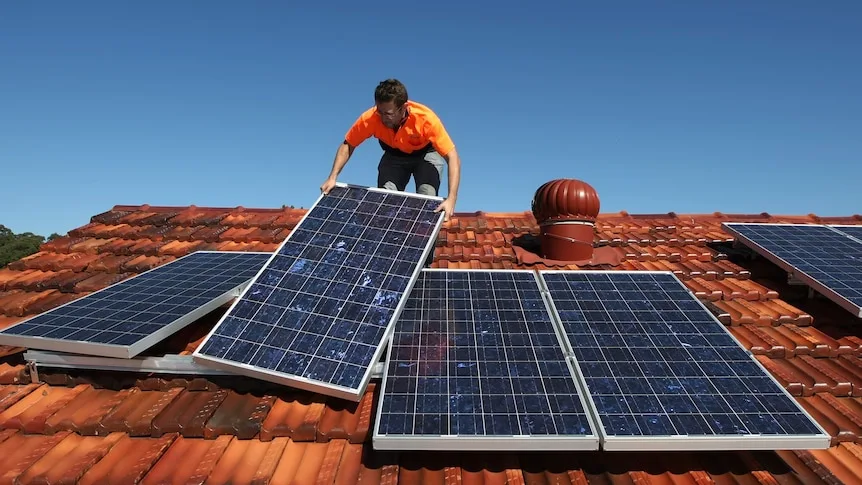- Wholesale power prices are increasingly turning negative at times of high solar output
- Observers say rooftop solar is “cannibalising” electricity prices and hitting large-scale solar hard
- There are calls for storage and greater daytime demand to help soak up solar production
Here in California, utility companies are “solving” this by instituting extremely high fees for the privilege of connecting your solar power to the grid. If I recall from the last time I ran the numbers, rooftop solar panels no longer make economic sense for the vast majority of residential customers - it costs more money to install me solar panels and pay the monthly connection fees then you’ll save by producing energy over the lifetime of the solar panels.
Probably the one time in history PG&E tried to fix a problem ahead of time. 😆
Fucking greedy cunts.
Can you at least legally have solar that doesn’t put any power into the grid?
From what I know the batteries you need to store your own electricity at home are crazy expensive
Yes, but you don’t necessarily need batteries. If you just have a bit of solar, you’ll use up all the power it produces as it does that.
I’m sure this has been discussed, but storing your solar energy as potential energy could avoid paying connection fees. Pump some ground water into a raised tank - or hoist heavy objects (large logs)?
Now that I type it out, it seems either dangerous or inefficient or not cost effective. Or all of the above.
Fun to think about, though
There was a company that stacked concrete bricks to store electricity, with the point being that on demand the crane could pick up bricks and gain the energy from dropping them down. Hit all sorts of news sites, never heard of it reaching practical use.
EDIT as noted by another commentor, apparently it did.
Sure! As far as I know, county and city ordinances permitting, you can be off grid in CA.
However, if you’re on grid, and you connect your solar panels to your home electric system, your solar power is now connected to the grid. I don’t think you can segregate electricity by source. You could in theory have some of your home powered by your solar and some of your home powered by the grid, separate systems that don’t connect, but I think that would be both dangerous and illegal. Maybe you could have an ADU that’s totally solar powered while your house is on grid?
And googling today - it’s been a while - it looks like CA regulators withdrew their shitty fee schedule and approved a slightly less shitty fee schedule, so good news there 😆
There are solar inverters that will just take some load off the grid, but never put power into it for this use case. It’s technically connected to the grid but for the grid, there are no downsides or risks.
If the fee also applies to that, it’s just straight up stupid.
They are at it again, trying to block solar on churches and schools. Tell Gavin Newsom to get his CPUC in line.
get more solar, battery and fully disconnect?
In Colorado, it’s actually illegal to disconnect from the grid once you’re on the grid. Yay capitalism!
Nova Scotia Power proposed something similar, and then walked it back.
The electricity network should be a public utility. Taxes should be used to make and maintain a network, not make a profit. If people can contribute to the network and decentralise generation, it shouldn’t be a problem. It being a problem is an indication of a broken system.
It noted utility-scale solar plants were having to pare back generation or switch off entirely during such periods to avoid having to pay to maintain production.
Bro, generate hydrogen with that abundant energy! Then when solar can’t provide energy (at night) and at the same time wind energy isn’t available, you can generate energy from the hydrogen. Hell, with that abundant energy, you could create a whole hydrogen economy and tank the petrol economy - make it completely obsolete. How the fuck is this a problem?
Hydrogen is hard and dangerous to store. Not only does it leak easily, it can also explode. You don’t want hydrogen tanks in your neighborhood.
They already have cars storing and running on H2, so I don’t think it’s the problem it once was. See the Toyota Mirai.
It can also be converted to liquid ammonia (nh3 h2) to solve the storage and long term/distance problems.
Store it as a solid, no worries
converted to liquid ammonia (nh3 h2) to solve the storage and long term/distance problems.
Or use the energy to desalinate sea water or any of a multitude of other uses for spare capacity.
Meanwhile in Australia anyone without solar panels is paying record high prices for their power and are trying to conserve their power use as much as possible to try to make ends meet. There’s no “negative pricing” for consumers.
That’s why the calls for storage should be in the form of rebates for solar and battery systems for residential houses, rather than the big battery tech they keep on suggesting we use. Wholesale prices won’t go negative if solar users don’t sell the power they generate, and the solar users can save money too by using the power we’ve stored when the prices go up.
It’s a win-win, albeit with the major exception of those who don’t have solar. Who won’t be able to take advantage of negative prices and will probably be hung dry with higher bills (keep in mind they are already pretty high to begin with)
Commercial cost are significantly cheaper at grid scale storage and also covers renters not just the elite ….
Build 'em all. There will be winners eventually. Until then, let’s try everything.
That’s pretty amazing. I guess it’s time to start moving on short-term energy storage solutions.
I present to you: a rock.









